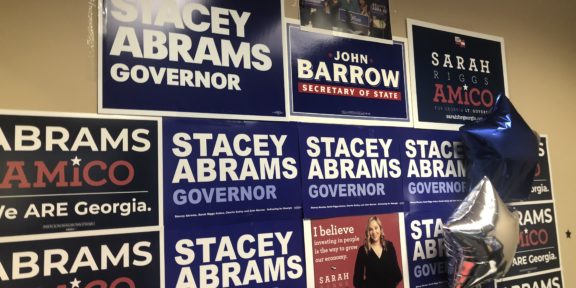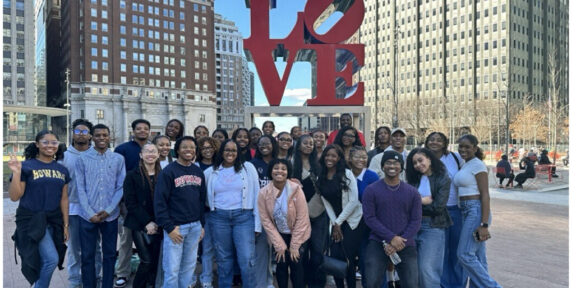
"Carter High," written, produced and directed by Arthur Muhammad,
debuts Nov. 13. Photo courtesy of Kim Alexander Photographic Arts
WASHINGTON — It is one of the most storied, yet tragic tales of Texas high school football history, perhaps all of high school football.
In 1988, the David W. Carter High School football team in Dallas seemed a story of success and boundless promise, the stuff of legend. It was the Texas 5A state champion, rated one of the best teams in the nation and possibly the best ever in Texas history. It was chocked with talent, including one player who would eventually become a five-time pro bowler in the NFL.
Bad youthful decisions, however, derailed the team’s legacy, brought shame to the school and its players’ community and landed five of the team members behind bars for armed robbery, including its star player.
It is that part of the story that writer and producer Arthur Muhammad said he is trying to drive home in his new movie, “Carter High,” which screened at Howard University recently and opens in theaters nationwide Nov. 13.
“I want to help these youngsters make better choices,” said Muhammad, 44, who played wide receiver on the team and consequently knows the story intimately.
Muhammad said he made the film with the hope that current African-American youth will be deterred from the mindset of popular culture and Hollywood by watching a true, non-glorified story where wrong decision could change their lives forever.

The star football players and characters
for the Carter High Cowboys Derric (left), Keith (second left),
P.K. (third left), Gary (fourth left), Carlos (right), Robert (second right)
and Jessie (third right), captured in a tense scene.
Photo courtesy of Kim Alexander Photographic Arts
In 1988, the Carter High Cowboys were considered the best football team in Texas high school football history, but it had its flaws. As Muhammad tells the story in the film, five of the players were irresponsible teenagers who often got themselves into trouble. They started food fights, gambled excessively and generally had disregard for the rules and others.
On the field, however, they were special, with their self-acclaimed “11 Man Posse” defense. Their victory over the Permian High School Panthers on the way to the state championship was depicted in the 2004 film Friday Night Lights.
Just days after they claimed the state championship, however, things began to unravel. Six of the players were accused of 21 armed robberies. Five were found guilty.
Upon sentencing, District Judge Joe Kendall told the teenagers that they had committed “more armed robberies than Bonnie and Clyde did in their lifetime.”
The “totally unnecessary” sentences that the teenagers received was another theme that Muhammad said he wanted to drive home, the unequal treatment African American boys receive from the criminal justice system.
Derric Evans was sentenced to four 20-year concurrent terms; Gary Edwards to three 16-year concurrent terms in state prison; Keith Campbell to four 25-year concurrent terms; Carlos Allen to three 13-year concurrent terms, and P.K. Williams to three 14-year concurrent terms.
The harsh sentences registered with the Howard students, many of them still teenagers.
“The court scene was so emotional for me,” said Howard student Gerald Doe of Ridgeland, S.C. “It was so touching and just a really great scene.”

Former Dallas Cowboy and executive producer of "Carter High" Greg Ellis (left)
and Arthur Muhammad (right). Photo courtesy of Kim Alexander Photographic Arts
Today, because of the bad decisions that the players made, there is no record of one of the most talented Texas high school teams ever assembled, no evidence of its dominance. The state title was stripped in January 1991, the trophy returned and the record book revised.
It’s all gone because of youthful indiscretion, Muhammad noted.
At the end of the movie, former Carter players Campbell, Williams and Evans were shown giving advice to the youth to always make good choices. After seven and a half years, all five players were released.
Ashley Blake of Washington, was one of the many viewers who said they liked the film.
“It was a very influential movie,” Blake, 25, said. “If young African American men could see this movie, it would definitely be effective. The timing is perfect and the message is great.”
Muhammad said so far, the film has gotten good reaction. Most importantly, it is having an impact on the people he most wanted to reach.
“We just released the movie in Dallas, and the feedback has been tremendous from young people,” he said. “They said the movie has helped change their lives. And that’s the point we want to make. That you can choose your destiny based on the choices that you make.”





